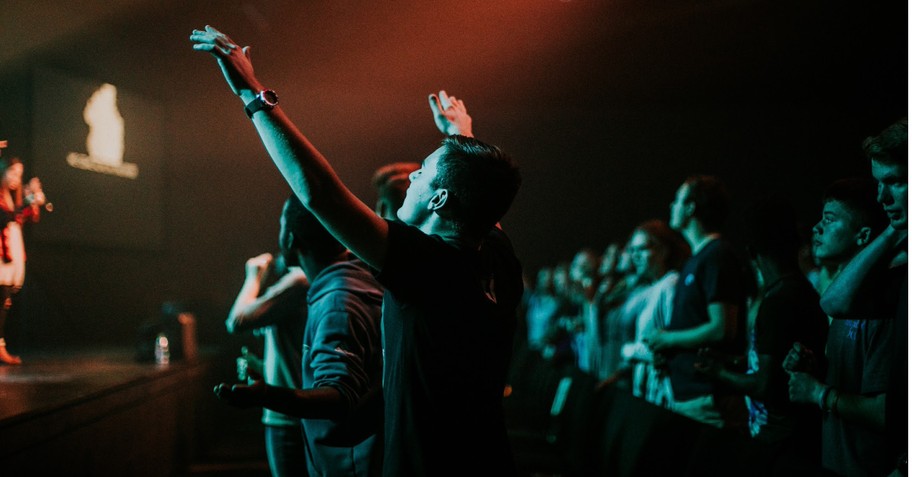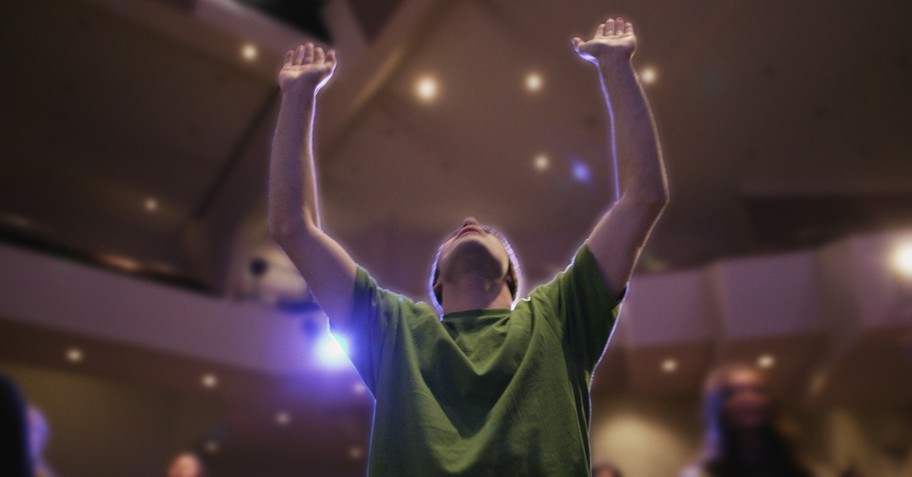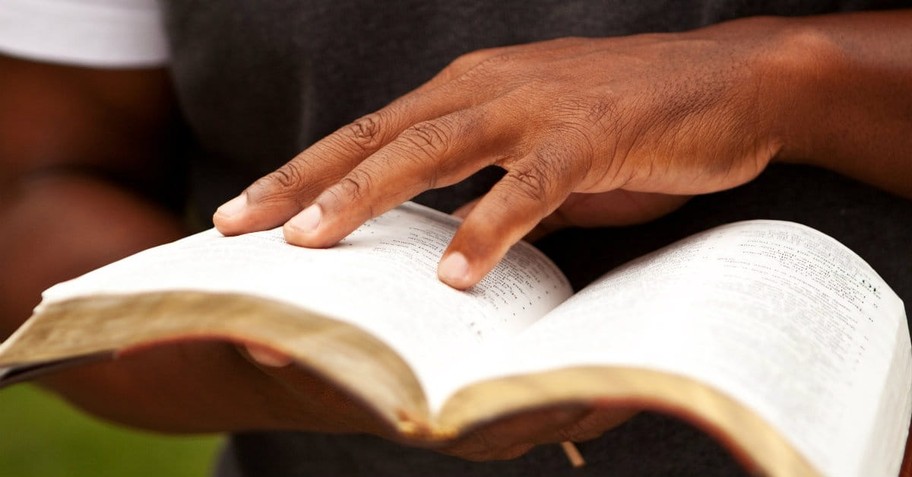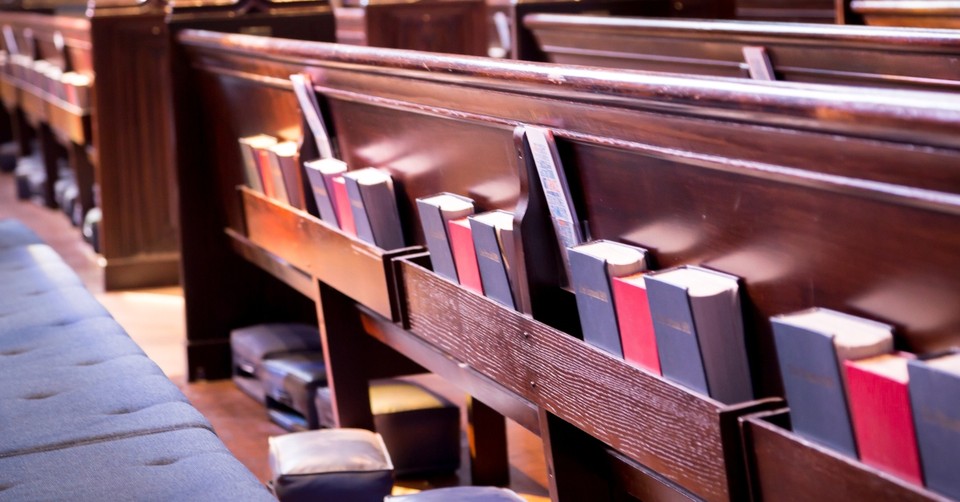When you hear the word "liturgy" you may think of a strict church service that offers no room for the Holy Spirit to move. But the word means so much more than tradition. It has biblical origins, can be applied in our personal lives, and if done correctly, can be a beautiful thing.
Let's take a look at the true meaning of liturgy, a breviary of its history, and how we can incorporate liturgy into our daily lives.
Photo Credit: ©GettyImages/DanHenson1

What Does ‘Liturgy’ Mean?
Have you ever received a bulletin at church that listed the events of that day’s service? Or perhaps the church displayed on a screen what songs they would sing, when they would take communion in the service, etc. If your church follows a string of events, they follow something known as liturgy.
We can often think of liturgy in terms of more traditional denominations following a strict pattern of events (more on this in a moment), but liturgy simply means a series of events a church follows throughout a service.
The actual English term liturgy stemmed from the 1550s, but the church has been following liturgy since its beginning. Let’s take a look at what the Early Church did in terms of liturgy
Acts 2:42: “And they devoted themselves to the apostles' teaching and the fellowship, to the breaking of bread and the prayers.”
Here we have elements of liturgy. They had teaching, fellowship, communion, and prayers. Other parts of Scripture mention them singing hymns as well as diving into the Word. Or at least, the Word as they knew it. They slowly acquired the books of the New Testament throughout their history as copies circulated.
We must keep in mind that the early church, although organized, didn’t have the same organizational structures our churches have today. For the first 300+ years, the followers of the Way were on the run from the persecution of the Roman Empire, until Constantine steps into the picture. Although they did have times where they gathered and exercised liturgy, these efforts may have looked a little different in different towns and churches.
Speaking of differences, let’s take a look at how our different denominations handle the concept of liturgy, starting with the Roman Catholic church.
Photo Credit: ©iGetty Images/WDnet

What Does Liturgical Worship Signify in the Catholic Church?
Most of the time, when we hear the word liturgy, we think of a traditional Catholic service, steeped in tradition. Christians value liturgy because of the history and tradition attached to it—that believers have incorporated the same elements of worship into their services for centuries.
A Roman Catholic service typically has these liturgical elements.
Introductory Rites: Times for a greeting, confession, and offering
Readings of the Word: Often from different parts of Scripture such as the Psalms and Gospels. This is also when a homily happens, a short sermon that often has a tangible or figurative illustration that teaches a lesson.
The Eucharist: This is a fancy word for communion, this often includes a prayer and Eucharist song.
Concluding Rites: A blessing and often a dismissal happens at this time as well.
Of course, although Catholic churches do revere tradition, some may have some slight deviations from this format.
Is Liturgy Only in the Catholic Church?
Photo Credit: ©Unsplash/Hannah Busing
In short, no. Technically every church, no matter how traditional or relaxed, engages in liturgy. You may notice that your church follows a similar pattern each Sunday. I’ll use my non-denominational one as an example.
Greeting>Worship (often four to six songs)>Offering>Sermon>Communion>Concluding Worship or Blessing
Often my pastor will sprinkle in times of prayer, confession, Scripture reading, and on select Sundays, baptism.
Churches often have a reason behind the liturgy they do. A Lutheran church, for instance, chooses to read from different parts of Scripture: an Epistle, a Gospel, etc.
Although some Christians may balk at the idea of liturgy, saying that it gives the Holy Spirit no room to move with such a rigid structure, other believers may assert that liturgy remembers a strong church tradition and makes sure every element of the service has symbolic and spiritual value.

Is Liturgical Worship Biblical or Man-Made?
Liturgy comes from both the Bible and man. And before this gets confusing, we need to show how liturgy has existed long before the church did.
The Old Testament has a lot to say about liturgy, especially when it came to the Levitical law, sacrifices, and how people conducted themselves at the Temple (or Tabernacle, depending on when in history). Although we can’t provide every passage on Old Testament liturgy (considering the Book of Leviticus alone is practically a guide on liturgy), let’s take a look at one in Leviticus.
Leviticus 1:1-9: The Lord called to Moses and spoke to him from the tent of meeting. He said, “Speak to the Israelites and say to them: ‘When anyone among you brings an offering to the Lord, bring as your offering an animal from either the herd or the flock. If the offering is a burnt offering from the herd, you are to offer a male without defect. You must present it at the entrance to the tent of meeting so that it will be acceptable to the Lord. You are to lay your hand on the head of the burnt offering, and it will be accepted on your behalf to make atonement for you. You are to slaughter the young bull before the Lord, and then Aaron’s sons the priests shall bring the blood and splash it against the sides of the altar at the entrance to the tent of meeting. You are to skin the burnt offering and cut it into pieces. The sons of Aaron the priest are to put fire on the altar and arrange wood on the fire. Then Aaron’s sons the priests shall arrange the pieces, including the head and the fat, on the wood that is burning on the altar. You are to wash the internal organs and the legs with water, and the priest is to burn all of it on the altar. It is a burnt offering, a food offering, an aroma pleasing to the Lord.”
The passage goes on but we see strong Bible origins in liturgy. With that said, in terms of liturgy in churches now, there’s a man-made element as well. The way we run our church services don’t always directly correspond with the picture we have of the Early Church in the Bible. The Bible doesn’t say, “Paul started off the church service with a greeting time where all the introverts awkwardly avoided eye contact with those who were greeting them with a holy kiss.” But churches do exercise an intentionality with liturgy and base what they do in service upon what we see practiced in Scripture.
Photo Credit: ©GettyImages/Design Pics

What Scriptural Liturgy Can Look Like for Individual Believers
Liturgy doesn’t just mean the order of events that occur on Sunday. We can have a personal liturgy as well. When we get up in the morning, do we check our phones or our Bibles? Do we have a personal routine that allows for us to dedicate time in the Word and in prayer.
In a busy world, many Christians can struggle to cultivate a personal liturgy. Our culture’s rhythm diverges heavily from a holy rhythm.
Personal liturgy can look differently for each person, but I do suggest implementing the following into your daily rhythm. If you find yourself going through the motions, try to switch it up or remember why you started in the first place.
Time in the Word: Many of my Christian mentors suggested doing “quiet time” in the mornings. After all, they would say, time in the Word helps us to put on our spiritual armor. In doing so, we prepare ourselves to fight our daily battles. However, I suggest choosing a time that you can focus and dwell on the words found in Scripture.
Time in Prayer: Aside from prayers at mealtimes, find ways to incorporate prayer in your daily life. Maybe this means praying in the mornings when you get up and right before bed when you lie day. No matter what the case, find ways to have conversations with God on a regular basis.
Time to Worship: Worship doesn’t just mean singing on Sundays. Personal and Corporate Worship both exist. Find ways in your day-to-day life to worship God. This can mean praising him or using your gifts and talents to bring glory to him.
Liturgy can often have negative connotations, but it’s important for us to understand the origins and the beauty behind it. It reminds us of where we’ve come from and uses Scripture as a basis.
Recommended for You:
Is Liturgy Still a Part of the Modern Church?
10 Fresh Ways to Study Your Bible
Why Writing Scripture Is Vital to Bible Study
How to Fast and Pray - Important Steps to Follow
What Does the Bible Say about Fasting?
Photo Credit: ©GettyImages
Originally published August 28, 2020.







